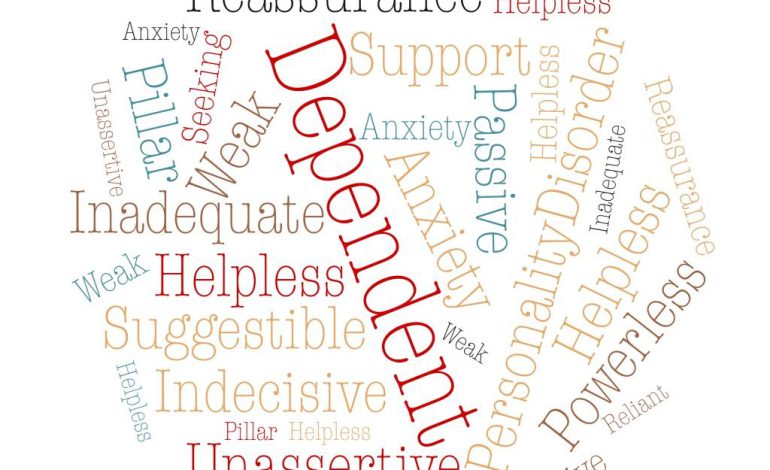Understanding dependent personality disorder
Dependent personality disorder (DPD) is a type of anxious personality disorder. that makes one feel like they cannot make independent decisions, and have to rely completely on another person to


Dependent personality disorder (DPD) is a type of anxious personality disorder. that makes one feel like they cannot make independent decisions, and have to rely completely on another person to do so. People with DPD have the following symptoms:
Symptoms
DPD may have similar characteristics with other personality disorders but has its uniqueness. The symptoms of Dependent Personality Disorder include:
Inability to make decisions without approvalExtremely submissive and passive behaviourConstantly avoiding arguments and disagreements with othersA strong fear of abandonmentIntense sadness and lethargy after a breakup or when a loved one leavesPutting up with abuse or a toxic relationshipDifficulty in initiating self-directed projectshealthline.com
Cause of DPD
The cause of DPD is not yet known. Mental health experts associate it with a combination of environmental, developmental and genetic factors. Experts have discovered that DPD can be linked to the following:
Abusive relationships: If you have been in an abusive relationship, you are at a higher risk of having DPD.Childhood trauma: If you went through abuse, verbal abuse inclusive, or neglected as a child, or had a life-threatening illness as a child, you are vulnerable to DPD.Family history: if someone in your family has DPD or another anxiety disorder, you are a candidate for DPD.
Diagnosis of DPD
To diagnose DPD, your psychiatrist will enquire about your mental health history with questions ranging from the state of your emotions to substance abuse issues. Your mental health practitioner will then make a comparison of your answers to the factors in the Diagnostic and Statistical Manual of Mental Disorders (DSM-5).
verywellmind.com
Treatment of DPD
There is no particular treatment that can cure DPD. It takes a combination of different approaches to managing the disorder. These intervention approaches include:
Medication– There is no all-in-one pill for DPD. However, some medications for treating anxiety (anti-anxiety drugs), depression (antidepressants) and mood changes (mood stabilizers) are known to help mitigate the severity of the symptoms of the disorder.Therapy– Psychotherapy is one of the most important interventions for psychological disorders and possibly the most important. It will help you resurface from the depths of DPD, emerging with control over your life. Cognitive behavioural therapy can be used to help you recognize harmful thought patterns and then acquire new behaviours.Education- It will serve you well to understand the condition as it will foster not only an understanding of yourself but also guide your family on how to support you. Education proves vital because it will be the foundation upon which you build on your recovery.Support group- Support groups will allow you to get better because you realise that you are not alone in the fight for recovery. You will feel encouraged and positive by sharing your story and by hearing other people’s perspectives.
Complications of DPD
DPD is accompanied by some complications. These complications include depression, anxiety disorders, phobias, and substance abuse. They are more likely to be abused by those he or she relates to because they tend to please others.
SEE ALSO: 5 tips for living with fibromyalgia
If you are a caregiver or partner to someone with DPD, it will likely take a toll on you. As such, you need to take time for yourself and recharge. Additionally, seek help whenever possible and do your homework on how to give care without getting damaged. This way your relationship is sustainable and will grow towards a positive direction.





